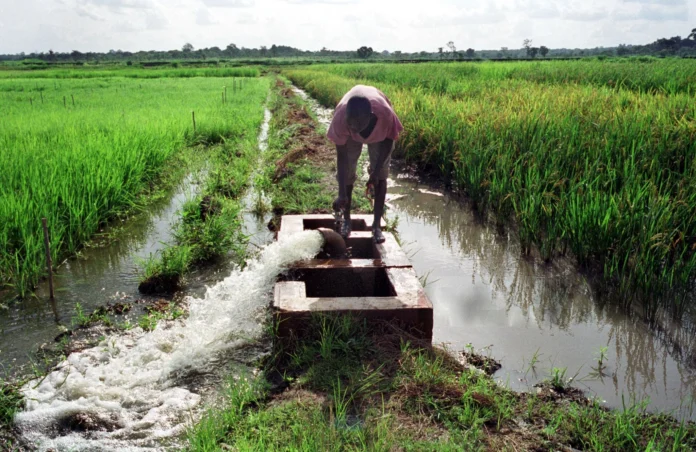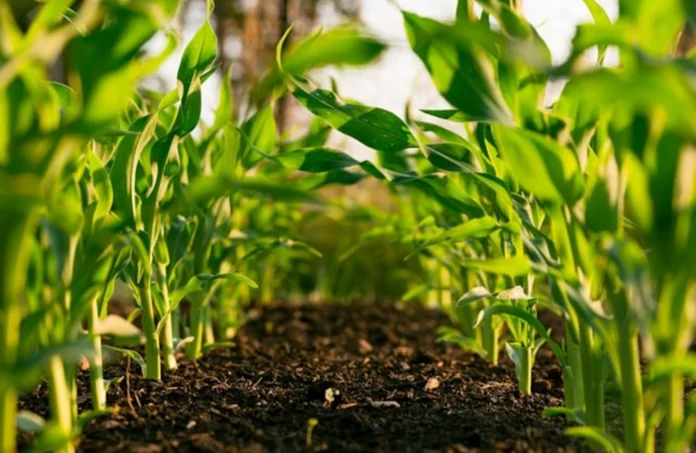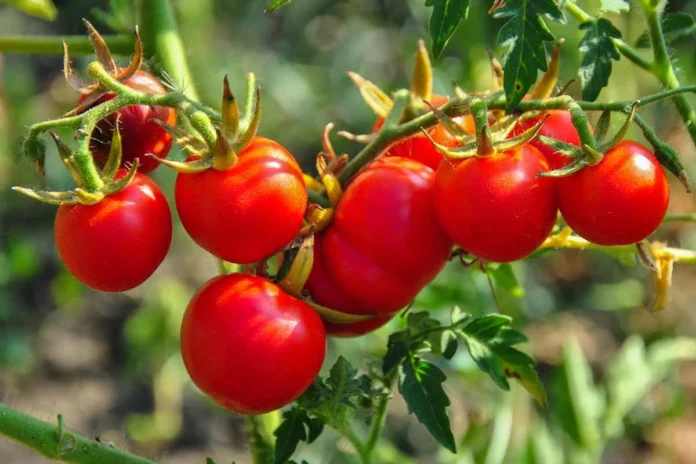Arabfields, Jendouba, Tunisia — In a significant boost to Tunisia’s agricultural and industrial sectors, the Ministry of Agriculture has officially launched the 2025-2026 sugar beet planting campaign in the northwestern region of Jendouba. Spanning an estimated 3,000 hectares, this initiative marks the resumption of local sugar production after a two-year hiatus, signaling a renewed commitment to food sovereignty and economic resilience amid ongoing global challenges.
The reactivation of the GINOR Ben Bechir complex, Tunisia’s sole factory dedicated to processing sugar beets, comes at a critical time. Established with a processing capacity of 4,000 tons per day, the facility in the Béja Governorate had ceased operations in 2023 due to a combination of financial strains, including high production costs, subsidy pressures, and disruptions from global market volatility exacerbated by events like the Russia-Ukraine war. This shutdown contributed to recurrent sugar shortages, forcing the country to rely almost entirely on imports, which strained foreign currency reserves and public finances.
Tunisia’s sugar sector has deep roots in the post-independence era, when the government established the Tunisian Sugar Company in Béja to ensure a steady domestic supply. Initially focused on beet sugar production, the industry aimed to complement imports and reduce dependency on foreign sources. However, over the decades, Tunisia has increasingly turned to imports, with the Office du Commerce de Tunisie (OCT) becoming the sole importer of white and brown sugar since the early 2010s.
The country’s annual sugar consumption stands at approximately 400,000 tons, based on a per capita intake of about 34 kilograms as of 2021. Historically, local production has covered only a fraction of this demand, with imports from countries like Brazil, India, Algeria, and even domestic sources accounting for the rest. In 2022, for instance, Tunisia imported over 200,000 tons of white sugar, with local contributions at around 32,100 tons. But economic pressures, including subsidy reforms and budget constraints, have led to fluctuations and shortages.
The two-year pause at GINOR was emblematic of broader challenges: soaring global sugar prices, foreign exchange shortages, and the inability to compete with subsidized imports. In 2022, white sugar disappeared from shelves for weeks, prompting the OCT to order emergency supplies from Algeria and other suppliers while blaming cancellations on external factors, though underlying payment issues due to currency shortages were a key culprit.
The revival of GINOR aligns with a national strategy to curb reliance on imported refined sugar, which has burdened public finances with hefty bills. With projected output of 30,000 tons of white sugar from this campaign, Tunisia aims to cover a meaningful share of its domestic needs, roughly 7-8% of annual consumption, while saving an estimated 20 million U.S. dollars (approximately 60 million Tunisian dinars) in foreign exchange annually.
This move not only stabilizes supplies for the agro-food industry, including confectionery, beverages, and bakeries, but also shields against international market swings. Global sugar production has seen deficits in recent years, with a slight surplus projected for 2022-2023, yet prices remain elevated due to reduced yields in major exporters like Brazil and India. By bolstering local production, Tunisia reduces vulnerability to such external shocks, enhancing food security in a country where inflation and economic hardship have fueled public discontent.
Forecasts suggest steady growth, with centrifugal beet sugar production expected to reach 21,760 metric tons by 2026, growing at an average annual rate of 3.4%. However, achieving the ambitious 30,000-ton target will require overcoming persistent hurdles, such as water scarcity, sugar beets are water-intensive, and climate variability in the arid North African context.
Beyond sugar, the beet crop offers a multifaceted value chain that extends economic benefits. By-products like fiber-rich pulp and molasses will be repurposed for yeast production, animal feed, and biofuels, creating additional revenue streams. Organic residues from processing can generate biogas, supporting Tunisia’s energy transition and reducing reliance on fossil fuels.
Agronomically, sugar beets enhance soil health with their deep roots, improving fertility and integrating well into cereal crop rotations. This promotes diversification, combats soil diseases, and fosters sustainable farming practices, vital in a region prone to erosion and drought. Farmers in Jendouba, Boussalem, and Ghardimaou stand to gain from stable incomes and guaranteed contracts with GINOR, revitalizing rural economies.
The factory’s reopening is poised to create hundreds of jobs across the supply chain, from field labor to transport, maintenance, logistics, and distribution. In Tunisia’s northwest, where unemployment rates often exceed the national average of around 15%, this could provide a lifeline. The initiative is expected to inject vitality into local communities, supporting ancillary businesses and infrastructure development.
Success hinges on meticulous planning. Authorities emphasize timely delivery: beets must reach the factory within 24-48 hours of harvest to maintain sugar content. Dedicated collection points and transport networks will streamline operations.
Transparent contracts will detail prices, quality benchmarks, and payment terms, fostering trust between farmers and GINOR. The company will offer technical aid, including high-quality seeds, efficient irrigation techniques, and agronomic guidance, targeting yields of 80 tons per hectare with 17% sugar richness.
Despite these measures, challenges persist. Subsidy reforms continue to pressure the industry, with government controls on prices for essential commodities like sugar to protect consumers. Balancing affordability with profitability will be key, as will addressing environmental concerns like water usage in a water-stressed nation.
This revival transcends industry; it’s a testament to Tunisia’s determination to harness local resources for self-reliance. By localizing production of a strategic commodity, the country mitigates external risks, modernizes agriculture, and builds ecological sustainability.
With rigorous execution in logistics, energy, and contracts, the sugar beet sector could reclaim its role as a national pillar, buffering against global uncertainties and empowering producers. As Tunisia navigates economic recovery, initiatives like this offer hope for a more autonomous and prosperous future.












